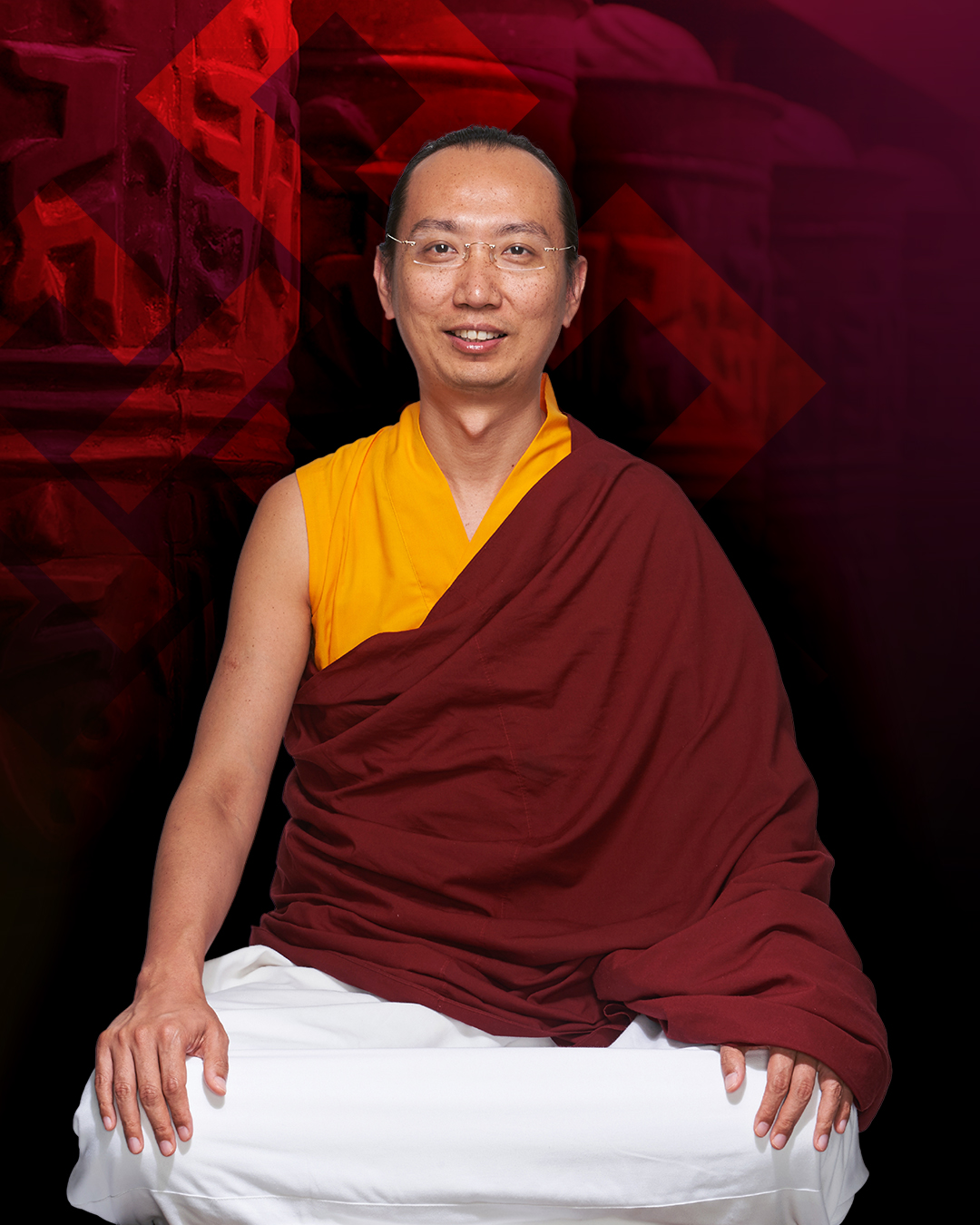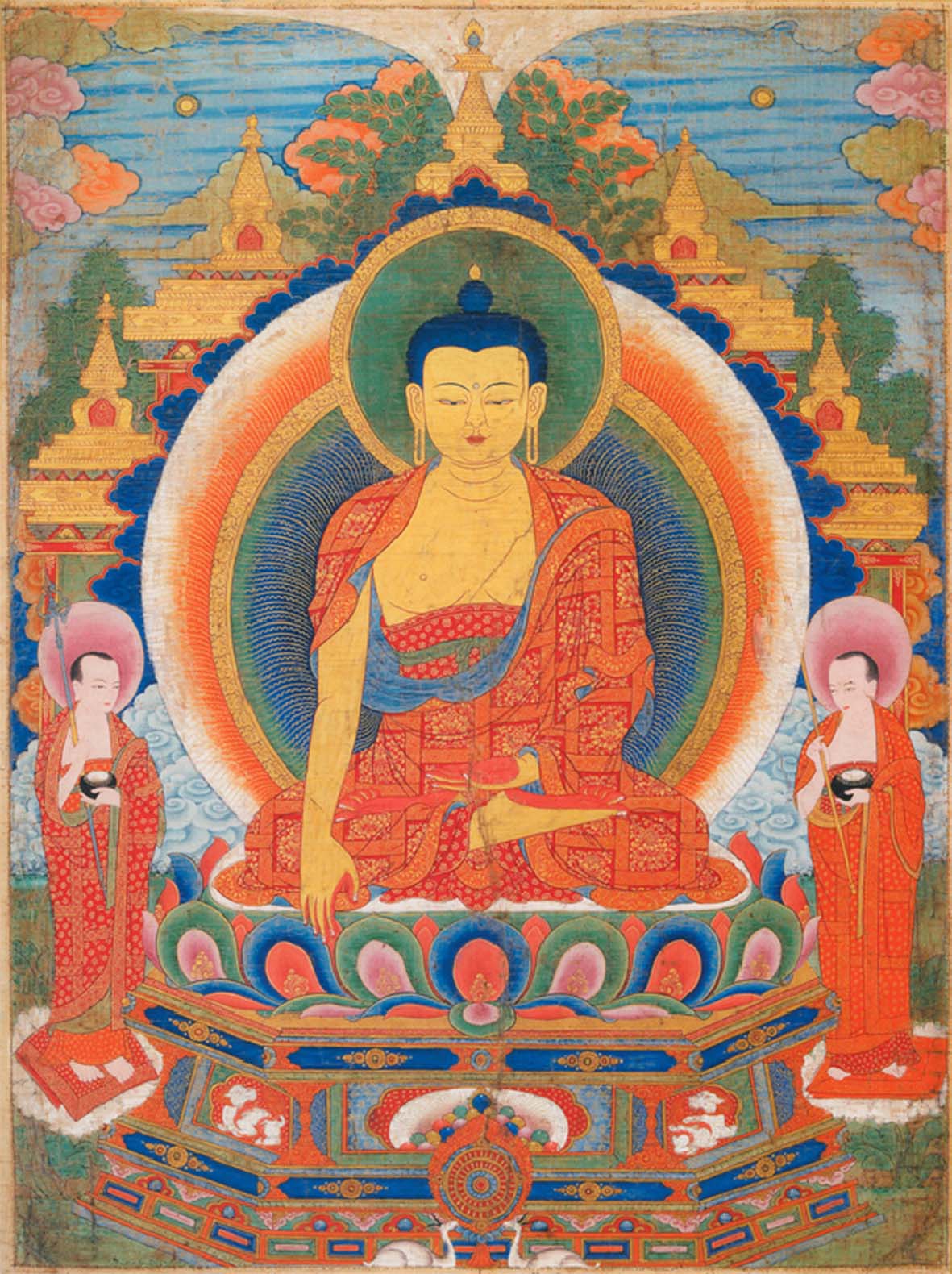
H. H. the 42nd Sakya Trizin Ratna Vajra Rinpoche
This is a unique opportunity to establish a spiritual connection with one of the most highly qualified masters of contemporary Tibetan Buddhism.
Kindness, Compassion and Wisdom in Everyday Life
Wednesday, June 25, 2025, 3:00 PM – 5:00 PM
A public talk open to all those interested in a deeper understanding of Buddhist teachings.
Buddha Shakyamuni Empowerment
Wednesday, June 25, 2025, 7:00 PM – 9:00 PM
The empowerment is intended for Buddhists or those who wish to become Buddhists.
Vajrakilaya Kago Blessing - for removing obstacles
A very effective ritual for removing obstacles
Venue: Tibet Open House, Školská 28, Prague 1 - Nové Město
Language: English with Czech interpretation
Contact: info@siddhartha.cz, +420 777 178 129
His Holiness the 42nd Sakya Trizin Ratna Vajra Rinpoche
His Holiness the 42nd Kyabgön Gongma Sakya Trizin is the previous head of the Sakya lineage of Tibetan Buddhism. From an early age, he received countless blessings, empowerments, and teachings from his father, His Holiness Kyabgön Sakya Gongma Trichen, as well as from many other spiritual masters.
Rinpoche tirelessly dedicates himself to passing on the precious teachings and meditative practices of the Sakya lineage to a new generation of practitioners—monks, nuns, and laypeople alike. He does so with humility, warmth, and a natural presence that has earned him the affection and admiration of both students and teachers.
Kindness, Compassion, and Wisdom in Everyday Life
The talk by His Holiness the 42nd Sakya Trizin will focus on a timeless and deeply human topic — how to cultivate kindness, compassion, and wisdom in everyday life. These three qualities lie at the heart of Buddhist practice, yet they also hold universal significance—they bring greater peace, understanding, and inner strength in any life situation. In times when we face uncertainty, haste, and pressure from the world around us, they can help us find stability, openness, and inner balance.
In his lecture, His Holiness will also introduce essential concepts of Buddhist practice, such as bodhicitta—the aspiration to attain enlightenment for the benefit of all beings—and taking refuge, the inner decision to turn toward the source of wisdom, compassion, and awakening.
This talk is intended for the general public, including those who are new to Buddhism.
What is an Empowerment?
A tantric empowerment is a sacred ritual through which one receives the blessing of the Buddha. This blessing activates the enlightened qualities of our innate Buddha-nature and enables us to cultivate them through a series of transformative practices and meditations.
The blessing is transmitted through an unbroken lineage that traces directly back to the Buddha himself, passed from master to student up to the present day.
During the ritual, the master offers instructions on the visualizations and prayers necessary to receive the empowerment. By receiving it, one establishes a special karmic connection with the teacher, the lineage of masters, and the specific Buddha associated with the empowerment. This also grants permission to engage in meditations and other practices designed to help us realize the same enlightened state. Empowerment supports the development of deeper compassion for all sentient beings, the purification of negative karma and obscurations, and the cultivation of wisdom and insight into the true nature of reality.
The full benefit of empowerment usually unfolds through ongoing study, practice, and guidance from a qualified teacher.
Shakyamuni Buddha Empowerment
This empowerment carries the blessings of an unbroken lineage that reaches back to Shakyamuni Buddha himself. It was brought to Tibet by the great spiritual master Jowo Je Atisha and the lineage continued within the Kadampa tradition and later within the Kagyu tradition. The text and instructions for this empowerment were composed by the 5th Kenting Tai Situ Rinpoche (1586–1657). The text, titled "Opening the Garden of Teachings – The Universal Empowerment of the Jewel of the Teachings with Instructions for Practicing the Ten Dharma Activities" (Tibetan: ནོར་བུ་བསྟན་པ་སྤྱི་དབང་བྱ་ཐབས་ཆོས་སྤྱོད་བཅུ་ཉམས་སུ་ལེན་ཚུལ་དང་བཅས་པ་བསྟན་པའི་ཚལ་འབྱེད་ཅེས་བྱ་བ་བཞུགས་སོ།), was later included in the Collection of Sadhanas by Jamyang Khyentse Wangpo (1820–1892), founder of the Rimé (non-sectarian) movement in Tibet.
Based on this empowerment, you will receive permission to engage in ten dharma activities, as well as the authorization to study, contemplate, and meditate on all of the Buddha’s teachings and their commentaries (known in Tibetan as the Kangyur and Tengyur).

Courtesy of Himalayan Art Resources
Vows and Commitments
As an integral part of the empowerment, both refuge vows and bodhisattva vows are bestowed. Tantric commitments accompany the practice of Tantra.
For this reason, this event is exclusively for Buddhists or those who wish to become Buddhists.
Refuge Vows
Taking refuge is the foundation of all Buddhist practices and the gateway to all vows. It involves taking refuge in the Three Jewels—Buddha, Dharma, and Sangha. The motivation to take refuge arises from the fear of suffering in samsara, compassion for others, and confidence in the Three Jewels. By taking refuge, we formally become Buddhists, committing to regard the Buddha as our teacher, the Dharma as our path, and the Sangha as our companions. After taking refuge, we must refrain from harming any being.
Bodhisattva Vows
The Bodhisattva vows commit one to the path of a bodhisattva, aspiring to attain Buddhahood for the benefit of all beings. This vow involves a commitment to selflessness, prioritizing the well-being of others, and practicing accordingly. There are two kinds of bodhicitta:
- Relative Bodhicitta: The aspiration to attain Buddhahood for the benefit of all beings and the determination to train in the methods necessary to achieve this goal.
- Absolute Bodhicitta: The direct realization of the absolute nature of phenomena, or primordial wisdom.
Tantric Commitments
In addition to the Refuge and Bodhisattva vows, Tantric practice involves specific commitments. These include respecting all beings, avoiding harm, and actively striving to help others.
There is no requirement for a daily sadhana practice after receiving this empowerment.
Vajrakilaya Kago Blessing
In Vajrayana Buddhism, Vajrakilaya is an important yidam that overcomes obstacles and obscurations. It is considered to be a wrathful form of the Buddha Vajrasattva or Vajrapani. The Vajrakilaya Blessing is very effective ritual for removing obstacles.
How to participate
→ In-person only – this event will not be streamed
→ On Wednesday, June 25, 2025, from 3:00 PM to 5:00 PM and 7:00 PM to 9:00 PM
→ in Tibet Open House, Školská 28, Praha 1 - Nové Město
→ Read the practical information and register at this link


